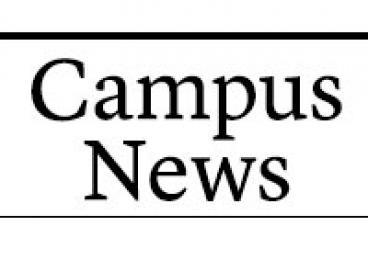
By Princeton Alumni Weekly


In the Feb. 9 issue, PAW took a closer look at Princeton’s no-loan financial aid, 10 years after it was approved by University trustees. Last month, PAW contributor Tara Thean gathered a handful of student perspectives on the topic, speaking with current undergraduates about how financial aid has shaped their choices at Princeton.
When Kathleen Brite ’13 walks through FitzRandolph Gate with her Princeton diploma, she hopes to find herself back in the classroom – not to take another Princeton course on international relations, but rather to teach K-12 students.

“Whether it’s in the ghettos of America or rural Africa, I’m fairly sure that’s what I’m meant to do,” she said.
Like many college students, Brite has big goals for the future. As she makes her plans, however, Brite said she does not feel pressure to secure a well-paying job after graduation, largely because of the financial support she has received from Princeton’s financial-aid program.
“The financial aid has given me the opportunity to really focus on making a difference instead of getting a paycheck,” she said. “I know that it’s possible to do both, but most of the things that I love aren’t necessarily high-paying.”
Chern Han Lim ’11 expressed similar sentiments, explaining that graduating from Princeton without loans means that he is free to work where he pleases “without a huge burden on [his] shoulders.”
He added, however, that the aid has not had a strong impact on his career plans. “I sort of knew all along that I wanted to enter the finance industry,” he said.
Omoshalewa Bamkole ’11 noted that though Princeton’s financial aid has been very generous, other circumstances such as her brother’s recent acceptance into Tufts University and a loan she took to pay for some of her Princeton costs have meant that the aid has not necessarily changed her post-graduation outlook.
“I guess [life after graduation will be] easier, but it’s not like I’m going to buy a house afterwards,” she said.
Bamkole, a psychology concentrator, said that financial considerations had initially influenced her intended major at Princeton – she entered the University set on pursuing chemical engineering.
“I felt that when I graduated I would get better jobs – more stable and higher paying,” she said. When she made the switch to psychology, she explained, “part of my hesitation was ‘what am I going to do with a psychology degree?’”
Brite, meanwhile, is selecting her concentration without relying on financial considerations, saying that she feels “free to explore options that are going to fill my soul more than my wallet.”
Similarly, Ricardo Brown ’13 is trying not to let financial security determine his choices, as he feels he will be able to pursue most paths regardless of his major. He admitted, however, that he occasionally wonders if he should concentrate in economics or engineering.
“I feel like a lot of people have this image that if you go to an Ivy League [school], you have to make a lot of money,” he said.
The financial-aid recipients who spoke with PAW unanimously said that the aid offerings contributed significantly to their decisions to enroll at the University.
“There is absolutely no way that I would be a student at Princeton were it not for the financial aid,” Brite said. “I don’t think words really can express how crazy thankful I am, how thankful my family is.”